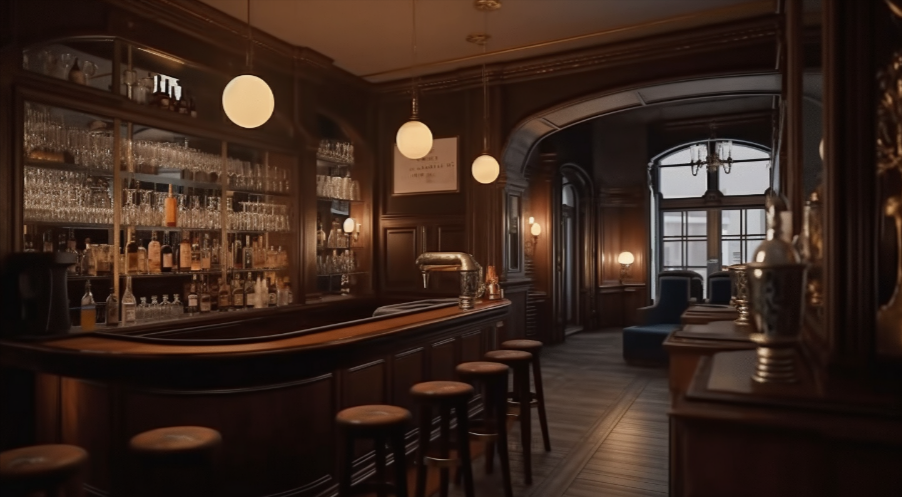As the saying goes, “the devil is in the details,” and when it comes to lease agreements for restaurants, this couldn’t be more accurate. These contracts, dense with legalese and peppered with stipulations, can be as complex as a master chef’s signature dish. Yet, their importance is equivalent to the foundation of a building; a shaky one can bring the entire structure down.
There are many clauses that would apply here to restaurants, but here are the ones we’ll be talking about in this post:
| Clause | Why it Matters | What to Look For |
|---|---|---|
| Use Clause | Defines the type of business allowed. Broad or vague clauses can let competitors move nearby or cause zoning issues. | Specifies exactly what your restaurant can do and restricts similar businesses nearby. |
| Exclusive Use Clause | Protects your business from direct competition within the same property. | Confirm exclusivity applies to your cuisine or offerings and clearly outlines landlord enforcement. |
| Repair and Maintenance | Determines who handles and pays for repairs, including HVAC, roofing, and plumbing. Misunderstandings can be costly. | Clarify which repairs are tenant vs. landlord responsibility and watch for “absolute net” clauses. |
| Health and Safety Compliance | Ensures the building meets safety standards. Non-compliance can cause fines or closures. | Review who pays for upgrades to meet fire codes, ADA, and other compliance issues. |
| CAM Charges | Adds shared costs like landscaping or snow removal to rent. These fees can be inflated or unclear. | Look for caps on annual increases and ensure transparency in how costs are calculated and billed. |
| Rent Abatement Clause | Defines rent relief when business disruptions occur (e.g., fire, major repairs). | Confirm conditions that trigger rent relief and whether tenant obligations are suspended during disruptions. |
| Assignment Rights | Determines if you can transfer the lease when selling or relocating your business. | Negotiate terms that allow assignment without unreasonable landlord approval. Avoid excessive fees. |
1. Use Clause
Think of the Use Clause as the recipe for your restaurant. It specifies what ingredients (or in this case, activities) can go into your business. The broader this clause, the wider your culinary playground. It’s essential that this clause is expansive, covering all potential activities of your restaurant. This includes food preparation, alcohol service, and even live entertainment. If you find the clause is as restrictive as a narrow kitchen, it may be time to negotiate. It’s about making sure your lease agreement is agreeable, and that your restaurant isn’t confined to serving fast food when it’s capable of haute cuisine.
2. Rent Abatement
Rent abatement can be a saving grace during trying times. It’s like an insurance policy that kicks in when the unforeseen happens, such as damage to the property or extended power outages. These are events that can disrupt your restaurant’s operation, and having a clause in your lease that allows for rent reduction or cessation during these times can offer much-needed financial relief. It’s important to discuss this clause with your landlord and negotiate terms that are fair and protective of your business.
3. Repair and Maintenance of Special Equipment
The third clause that requires your attention is the one dealing with the repair and maintenance of special equipment. Restaurants come with unique equipment requirements – ovens, freezers, grills, and more. Ensuring that the responsibility for the maintenance and repair of this equipment is clearly defined in the lease is essential. Otherwise, you might find yourself stuck with unexpected costs or, worse, a kitchen that’s out of commission.
4. Ventilation and Grease Traps
Running a restaurant requires certain infrastructural features, like adequate ventilation systems and grease traps. Just like a car needs regular oil changes, these systems need regular maintenance to keep your restaurant running smoothly. It’s important to ensure that your lease agreement specifies who is responsible for the installation, maintenance, and replacement of these systems.
5. Health and Safety Compliance
When it comes to running a restaurant, health and safety standards are as crucial as the food you serve. These regulations are not merely guidelines; they’re legally enforced standards that ensure your restaurant operates safely and hygienically. Overlooking this clause could mean placing your business in jeopardy.
For instance, if your restaurant falls foul of health inspections due to the property’s failure to comply with the required standards, you could face significant fines, damage to your reputation, or in the worst case, closure of your business. Therefore, it’s paramount to ensure your lease agreement stipulates who is responsible for maintaining these standards, including matters like waste management, pest control, and adherence to fire safety regulations.
6. Alcohol License

Serving alcohol can be a significant revenue stream for many restaurants. For some, it can make the difference between operating at a profit or a loss. The Alcohol License clause in your lease can directly impact this aspect of your business. If your lease includes restrictions that impede your ability to obtain a liquor license, it could significantly limit your restaurant’s earning potential.
Neglecting to review this clause carefully or failing to negotiate its terms could land you in a scenario where you are unable to serve alcohol, even if your business model relies on it. This could hamper your restaurant’s ambiance, limit your menu offerings, and reduce your overall profits. Therefore, it’s critical to ensure your lease doesn’t place unnecessary restrictions on your ability to serve alcohol if that’s part of your business plan.
7. Exclusive Use Clause
Imagine cooking up a storm with your unique recipes, only to find a similar restaurant setting up shop next door, dividing your customer base. The Exclusive Use Clause in your lease can prevent such a scenario. This clause restricts the landlord from leasing other spaces within the same property or complex to a direct competitor.
Having an Exclusive Use Clause is like having a secret recipe; it protects your restaurant’s unique position in the immediate vicinity. It helps maintain your customer base by preventing the oversaturation of similar restaurants in your locale, which could divide your potential customers and eat into your profits.
Failing to negotiate an Exclusive Use Clause in your lease could open the door for competitors to move in close proximity to your restaurant. This could dilute your market share, causing a potential decrease in customer volume and revenue. Given the competitive nature of the restaurant industry, it’s critical to consider and negotiate this clause in your lease agreement to safeguard your restaurant’s unique position and customer base.
8. Hours of Operation
The Hours of Operation clause in a restaurant lease agreement might seem straightforward, but its implications can ripple through your entire operation. This clause dictates the hours during which your restaurant must be open for business.
If not reviewed carefully, you may find yourself committed to operating hours that don’t align with your target demographic or peak business times. For example, a lease that requires a breakfast cafe to stay open until late in the evening could result in unnecessary staffing and utility costs. Similarly, a fine-dining establishment might struggle to attract its clientele for lunch if it’s obligated to open early.
Failing to negotiate suitable operating hours could lead to increased expenses, decreased profits, and a business model that’s out of sync with its market. Therefore, it’s essential to ensure the operating hours stipulated in your lease align with your restaurant’s concept and business plan.
9. Assignment and Sublease Rights
The restaurant industry can be unpredictable, and business plans can change. Therefore, having the flexibility to sell your business or sublease the space can be crucial. These rights should be considered during lease negotiations to provide you with an exit strategy, should you need one.
10. Percentage Rent
Some leases include a clause requiring tenants to pay a percentage of their gross income as rent. If present, you need to review the definitions of gross income and the percentage rate carefully. It’s an often-overlooked detail that could significantly affect your restaurant’s bottom line.
11. Land Alterations
Finally, the Land Alterations clause should be thoroughly reviewed. Restaurants often need to modify their premises for their specific needs. The lease should clearly specify whether you can make alterations or improvements to the property, and under what conditions.
Conclusion
Ok, maybe that was more than 7, but hey, consider the remaining four honorable mentions!
A restaurant’s lease agreement is a fundamental document that shapes its future. Like a chef with their recipes, you need to know every detail of your lease agreement. Understanding these clauses and their implications will not only protect your interests but also set the stage for your restaurant’s success. Remember, a real estate lawyer can be a valuable ally in this process, guiding you through the nuances and helping you negotiate the best terms for your business.



